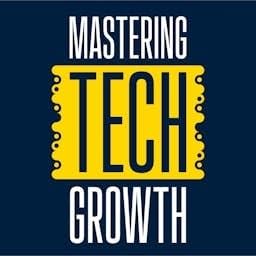Richardson Dackam is an AI Automation Engineer who's built a full ecosystem around one goal — helping founders build faster using AI. A YC Startup School alum and former senior engineer at Ticketmaster, FreshBooks, and Aurora Solar, Richardson blends deep technical experience with rapid prototyping systems that empower solo founders to go from idea to validated AI SaaS in a single weekend. Through his podcast, courses, and community, he teaches how to harness agentic AI frameworks, automate product workflows, and launch with speed — without waiting for a team, funding, or perfect plan.
In our conversation, Richardson shares:
→ Why most founders freeze — and how to break idea paralysis
→ The playbook to validate and build AI SaaS in just 48 hours
→ What makes a painkiller idea (vs. a vitamin)
→ How to use AI for customer research, roleplay, and PRD writing
→ The tools behind “Weekend Architecture” and real-time prototyping
→ His favorite way to get feedback before writing a single line of code
→ Why community is the ultimate shortcut to traction
→ What founders get wrong about market timing and speed
Whether you're a solo founder, indie hacker, or operator, this episode is packed with frameworks you can put into action immediately — even this weekend.
Where to find Richardson Dackam:
→ Website: https://richdackam.com/
→ LinkedIn: https://www.linkedin.com/in/richardsondx/
→ X/Threads: https://x.com/RichardsonDx
Where to find Mike Sirius:
→ Website: https://www.mikesirius.com
→ LinkedIn: https://www.linkedin.com/in/msirius/
In this episode, we cover:
00:00 Introduction to Tech Growth and AI
05:47 Overcoming Founder Challenges and Decision Paralysis
11:48 Understanding Customer Value and Painkillers vs. Vitamins
17:58 Finding Your Ideal Customer Profile (ICP)
23:46 Building Prototypes and Product Requirement Documents (PRD)
29:47 The Role of Community in Product Launches
35:49 The Future of SaaS in an AI-Driven World
41:40 The Hype of AI and Its Real Impact
49:46 Understanding AI Context and Its Importance
55:07 Micro Pain and Micro SaaS Opportunities
01:01:06 Building Systems for Efficiency
01:08:30 The Importance of Distribution in Startup Success
🎙️ Was this helpful? Let’s stay connected:
→ Subscribe to never miss a drop
→ Reviews mean the world — and help us grow
→ Drop a comment — we actually read them 🙂
→ Want to sponsor? Let’s chat: mike@msirius.com
→ More episodes: https://masteringtechgrowth.com
 1 hr and 17 mins
1 hr and 17 mins 1 hr and 15 mins
1 hr and 15 mins 1 hr and 16 mins
1 hr and 16 mins 1 hr and 22 mins
1 hr and 22 mins 1 hr and 10 mins
1 hr and 10 mins 1 hr and 22 mins
1 hr and 22 mins 1 hr and 22 mins
1 hr and 22 mins 1 hr and 9 mins
1 hr and 9 mins
